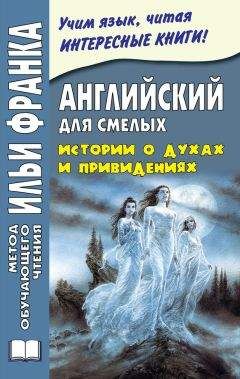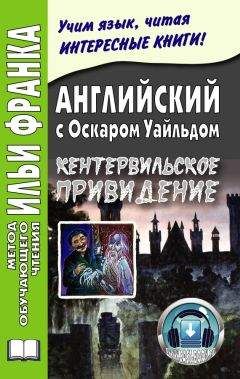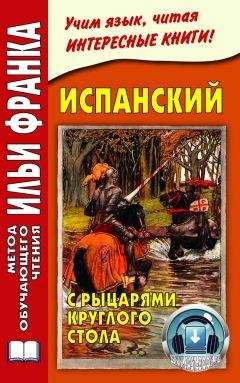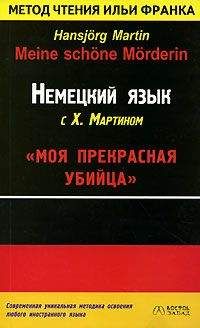Then he laid it down again.
‘He says he thinks he can,’ he said. ‘We must wait.’
The evening was again very warm, and the window into the paved yard at the back of the house was open. For five minutes or so the two men stood in silence, waiting, and nothing happened. Then the chaplain spoke.
‘I think that is sufficiently conclusive,’ he said.
Even as he spoke a very cold draught of air suddenly blew into the room (как раз когда он говорил, очень холодный порыв ветра внезапно прошелся по комнате; draught – сквозняк; air – воздух; to blow – дуть), making the papers on the desk rustle (заставив бумаги на столе зашуршать). Dr Teesdale went to the window and closed it (доктор Тисдейл подошел к окну и закрыл его).
‘Did you feel that?’ he asked (вы почувствовали это? – спросил он).
‘Yes, a breath of air (да, порыв ветра; breath – дыхание; дуновение). Chilly (пронизывающий; chilly – холодный; chill – холод, холодная погода).’
Once again in the closed room it stirred again (еще раз в комнате с закрытым окном засквозило; to close – закрывать; to stir – шевелиться; двигаться).
‘And did you feel that?’ asked the doctor (а это вы почувствовали? – спросил доктор).
The chaplain nodded (священник кивнул). He felt his heart hammering in his throat suddenly (он внезапно почувствовал, как бешено колотится его сердце; to hammer – бить, колотить, барабанить, громко стучать; hammer – молот, кувалда; молоток; throat – горло).
‘Defend us from all peril and danger of this coming night,’ he exclaimed (защити нас от всех бед и напастей надвигающейся ночи, – воскликнул он; danger – опасность).
‘Something is coming (что-то приближается)!’ said the doctor.
Even as he spoke a very cold draught of air suddenly blew into the room, making the papers on the desk rustle. Dr Teesdale went to the window and closed it.
‘Did you feel that?’ he asked.
‘Yes, a breath of air. Chilly.’
Once again in the closed room it stirred again.
‘And did you feel that?’ asked the doctor.
The chaplain nodded. He felt his heart hammering in his throat suddenly.
‘Defend us from all peril and danger of this coming night,’ he exclaimed.
‘Something is coming!’ said the doctor.
As he spoke it came (оно возникло с этими его словами). In the centre of the room not three yards away from them stood the figure of a man with his head bent over on to his shoulder (в центре комнаты не далее чем в трех ярдах от них стояла человеческая фигура с головой, склоненной к плечу; yard – ярд /мера длины, равная 91,4 см/; to bend), so that the face was not visible (так что лица не было видно). Then he took his head in both his hands and raised it like a weight, and looked them in the face (затем он взял свою голову в обе руки, поднял ее как груз и посмотрел им в лицо; weight – вес; масса; груз). The eyes and tongue protruded, a livid mark was round the neck (глаза были выпучены, язык вывалился, шею опоясывала синевато-багровая черта; to protrude – высовываться, выдаваться; livid – синевато-багровый; серовато-синий; mark – знак, метка; round – вокруг). Then there came a sharp rattle on the boards of the floor (затем что-то брякнуло на доски пола: «затем раздался резкий стук на досках пола»), and the figure was no longer there (и фигура исчезла: «и фигуры больше не было там»). But on the floor there lay a new rope (но на полу лежала новая веревка).
For a long while neither spoke (долгое время оба молчали: «ни тот, ни другой не говорил»; neither – ни тот ни другой; ни один, никто /из двух/). The sweat poured off the doctor’s face (по лицу доктора струился пот; to pour – литься), and the chaplain’s white lips whispered prayers (а белые = побелевшие губы священника шептали молитвы). Then by a huge effort the doctor pulled himself together (затем титаническим усилием доктор взял себя в руки; huge – большой, гигантский, громадный, огромный; to pull – тянуть). He pointed at the rope (он показал на веревку).
‘It has been missing since the execution (ее не могли найти после казни: «она отсутствовала с момента казни»; to miss – потерпеть неудачу; обнаружить отсутствие /чего-либо/),’ he said.
As he spoke it came. In the centre of the room not three yards away from them stood the figure of a man with his head bent over on to his shoulder, so that the face was not visible. Then he took his head in both his hands and raised it like a weight, and looked them in the face. The eyes and tongue protruded, a livid mark was round the neck. Then there came a sharp rattle on the boards of the floor, and the figure was no longer there. But on the floor there lay a new rope.
For a long while neither spoke. The sweat poured off the doctor’s face, and the chaplain’s white lips whispered prayers. Then by a huge effort the doctor pulled himself together. He pointed at the rope.
‘It has been missing since the execution,’ he said.
Then again the telephone bell rang (затем вновь зазвонил телефон). This time the chaplain needed no prompting (на этот раз священнику не надо было говорить, что делать; to prompt – побуждать; подсказывать). He went to it at once and the ringing ceased (он сразу подошел к телефону, и звонок прекратился). For a while he listened in silence (некоторое время он слушал молча).
‘Charles Linkworth,’ he said at length (Чарльз Линкворт, – наконец сказал он), ‘in the sight of God, in whose presence you stand, are you truly sorry for your sin (перед лицом Бога, в чьем присутствии ты стоишь, воистину ли ты покаялся в своем грехе; sight – зрение; поле зрения, видимость; to be sorry – сожалеть)?’
Some answer inaudible to the doctor came (ответ доктор не услышал: «какой-то ответ, не слышимый доктору, пришел»), and the chaplain closed his eyes (и священник закрыл глаза). And Dr Teesdale knelt as he heard the words of the Absolution (и доктор Тисдейл встал на колени, услышав слова отпущения грехов; to kneel; absolution – освобождение /от ответственности, долгов, наказания/; /рел./ отпущение грехов).
At the close there was silence again (когда священник закончил, снова наступила тишина; close – зд.: завершение, окончание).
Then again the telephone bell rang. This time the chaplain needed no prompting. He went to it at once and the ringing ceased. For a while he listened in silence.
‘Charles Linkworth,’ he said at length, ‘in the sight of God, in whose presence you stand, are you truly sorry for your sin?’
Some answer inaudible to the doctor came, and the chaplain closed his eyes. And Dr Teesdale knelt as he heard the words of the Absolution.
At the close there was silence again.
‘I can hear nothing more,’ said the chaplain, replacing the receiver (больше я ничего не слышу, – сказал священник, положив трубку; to replace – класть на место).
Presently the doctor’s man-servant came in with the tray of spirits and siphon (вскоре появился слуга с подносом, на котором стояли спиртные напитки и сифон; man-servant – слуга мужского пола). Dr Teesdale pointed without looking to where the apparition had been (доктор Тисдейл не глядя указал на то место, где было привидение).
‘Take the rope that is there and burn it, Parker (возьмите веревку, что лежит там, и сожгите ее, Паркер),’ he said.
There was a moment’s silence (последовала краткая пауза; moment – миг, минута, момент; silence – тишина, безмолвие).
‘There is no rope, sir (тут нет никакой веревки, сэр),’ said Parker.
‘I can hear nothing more,’ said the chaplain, replacing the receiver.
Presently the doctor’s man-servant came in with the tray of spirits and syphon. Dr Teesdale pointed without looking to where the apparition had been.
‘Take the rope that is there and burn it, Parker,’ he said.
There was a moment’s silence.
‘There is no rope, sir,’ said Parker.
Phantom – призрак, фантом; coach – коляска, карета, экипаж.
Англия – составная часть Великобритании, занимает юго-восточную и центральную части острова Великобритания; крайний север Англии – районы, граничащие с Шотландией.
Natural philosophy (первоначально «натурфилософия») – общее название существовавших в древности вплоть до XIХ века философских учений о природе, не опиравшихся на строгие естественно-научные знания. Позднее – физика в современном понятии (уст., теперь в этом значении используется только в шотландских университетах).
Франц Антон Месмер (1734–1815) – австрийский врач, основоположник месМэризма, в основе которого лежит учение о так называемом magnétisme animal, что традиционно, но не совсем верно на русский переводится как «животный магнетизм», посредством которого можно изменять состояние организма, в т. ч. излечивать болезни.
Карл Людвиг фон Рейхенбах (1788–1869) – известный химик, геолог, металлург, философ. Последние годы жизни посвятил изучению патологий нервной системы человека, что привело его к теории «Силы Одина», – формы жизненной энергии, родственной магнетизму, которая пронизывает и соединяет все живые существа.
Эмануэль Сведенборг (1688–1772), шведский ученый и теософ-мистик.
Этьен Бонно де Кондильяк (1715–80) – французский философ. Развил сенсуалистическую теорию познания: ощущения – единственный источник знаний. Один из основоположников ассоциативной психологии.
Джордж Беркли (1685–1753) – английский философ. Утверждал, что внешний мир не существует независимо от восприятий и мышления: бытие вещей состоит в их воспринимаемости. Субъективно-идеалистическое учение Беркли – один из источников эмпириокритицизма, прагматизма, неопозитивизма.
Soul и spirit – во многом синонимы. Spirit – тот жизненный принцип, что отличает живое от неживого, в то время как soul – нематериальная составляющая человека, душа в христианском понимании, т. е. в прямом значении применимо только к человеку.





